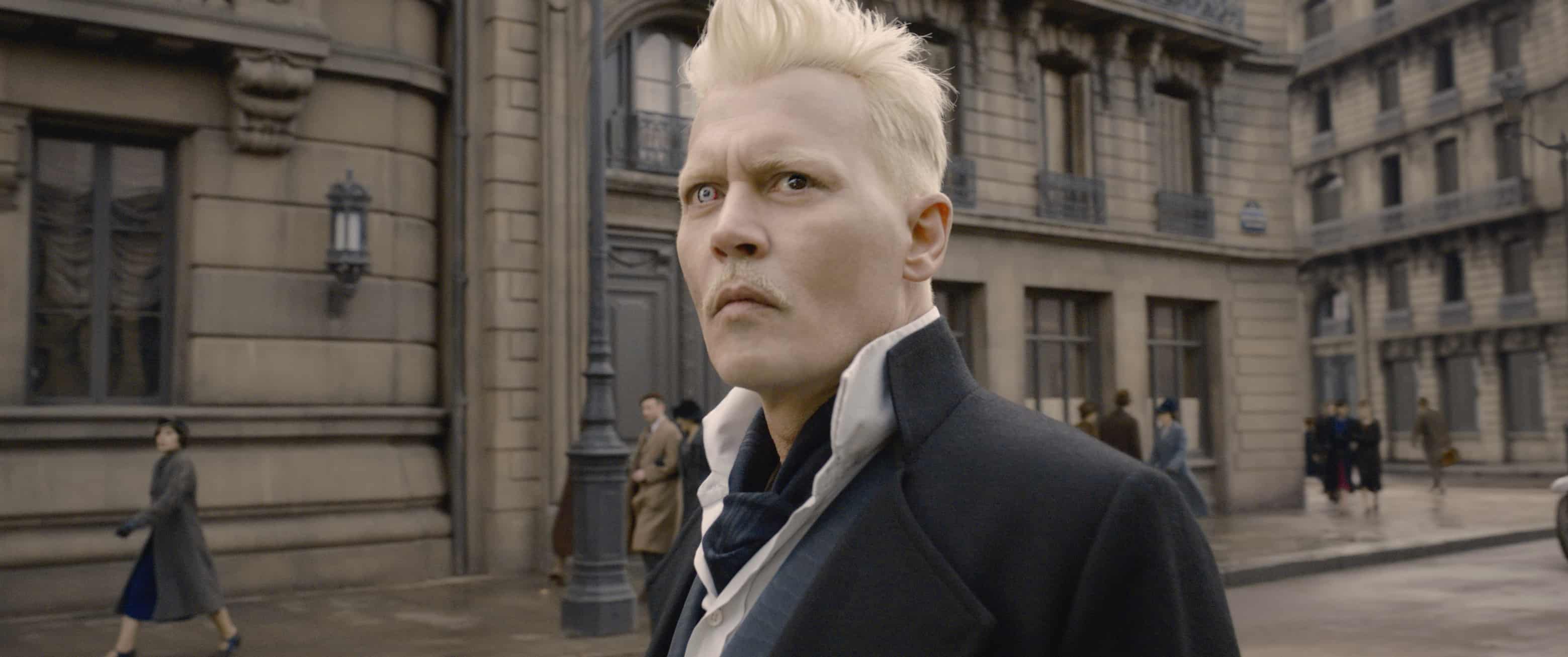[Warning: While there are no major plot spoilers, there are plenty of character spoilers throughout.]
For a movie entitled The Crimes of Grindelwald, there are noticeably few moments wherein the villain himself commits crimes. And yet, there is something about this villain that causes a cold shiver to crawl down the spine.
Evil manifests itself in different ways. On the one hand, the original villain from the J. K. Rowling’s Harry Potter series, Voldemort, demonstrates a pure and volatile malice. He embodies a chaotic power which strikes in anger against all who stand in his way, and at times he even lashes out against his own followers. On the other hand, Grindelwald does something different: he is cold, calm, and calculating. Everything seems to fall exactly according to the mechanizations of his will. Murders and disaster occur in his wake, but he is not the one to commit them.
No. Grindelwald is something worse—he leads others to evil by using their own desires. As one character indicates of Grindelwald, “He’s extremely powerful. We’ve had to change his guard three times—he’s very…persuasive. So we removed his tongue.” That one-line introduction to the villain sets the tone for a much different adventure in the latest addition to J. K. Rowling’s wizarding world. Grindelwald is dangerous, not because he kills but because he speaks to the worst desires and fears within characters.
Early in the movie, Grindelwald stands in the middle of the street, looking with the audience through the windows as his accomplices murder a family and steal their home. He says nothing in the scene, but it is clear that those around him act under his command. When he eventually walks into the house, a cry from upstairs pulls him and his minions into a nursery where Grindelwald awkwardly stares at a child. Upon leaving the nursery, we see a green flash—a clear indication of a murder in the Harry Potter world. Throughout all of this, Grindelwald remains silent. And yet, we cannot help but feel that despite his silence, Grindelwald animates these atrocities.
The silver-tongued Grindelwald, played by Johnny Depp, echoes what St. Ignatius of Loyola talks about with the “false spirit.” For Ignatius, the false spirit speaks to our despair and our fears, using them to motivate us into action. The false spirit also tells us what we want to hear—in terms of affirming those surface desires which we know deep down do not fit our true purpose. Yet, despite the false spirit’s lies, we all too easily fall prey to their appeal.
Lies and truth play an essential role in the movie, and they also play a role within our own lives. Grindelwald, like the false spirit, speaks to those surface desires which ignore the deeper wounds and truths.
In one instance, Grindelwald whispers his lies to Queenie Goldstein, a friend of Newt Scamander, promising her that he supports her desire for love and the creation of a world in which one can love freely. He speaks slowly, cautiously approaching her physically as she stands firm with her wand pointed square at his chest. She caves, even handing her wand over to him in a moment of surrender. What is striking is that Queenie must know—as the audience does—that Grindelwald is lying to her. He seeks to rule the world, and part of that desire rests upon his desire to torment and kill non-magical people. Yet, he speaks to her desires for love, and she falls.
Both Ignatius and Fantastic Beasts: The Crimes of Grindelwald propose similar plans for defeating the false spirit: you must speak and hold to the truth.
The characters who are fundamentally good, the moral exemplars, seek what is right. As Dumbledore claims of Newt Scamander, the protagonist, “You simply ask, is the thing right in itself? If it is, then I must do it no matter the cost.” There is a cost to doing what is right and seeking what is true. Often truth means facing hard realities, acknowledging one’s sins and failings, or even realizing that there is no easy solution to a situation.
The Crimes of Grindelwald clearly builds on this tension. When Queenie uses a love potion, Newt Scamander confronts her. His words are harsh, but they are true. That brave stance from Newt leads to the discomfort of accepting that a situation cannot be fixed with an easy potion.
In another moment, Dumbledore addresses one character about disclosing a secret: “It’s never too late to free yourself. Confession is a relief, I’m told. A great weight lifted.” His words seek to draw from her a public statement which would undercut Grindelwald’s plans, but the confession would also mean facing her own failings, sins, and past. She is faced with a hard choice: the pleasant and convenient lies, or the hard and uncomfortable truth. Revealing the truth—the right choice—comes with shame, but letting the lie persist risks the lives of others.
Fundamentally, that false spirit speaks the words we want to hear, but these words fall short of what we know deep down to be true. Grindelwald’s suave and careful language similarly conceals the truth. His words are easy to accept, but they lead to the same desolation and destruction that the false spirit seeks for us.
The way to defeat both Grindelwald and the false spirit lies in the bravery both to name the speaker as villain and to hold onto the truth, despite the fact that the lies might seem more appealing in the moment. It forces us to choose sides in the battle, just like the characters must choose within The Crimes of Grindelwald. Will the characters in the movie—and will we—hold onto the truth, or will we fall into the trap of the villain’s lovely lies?


